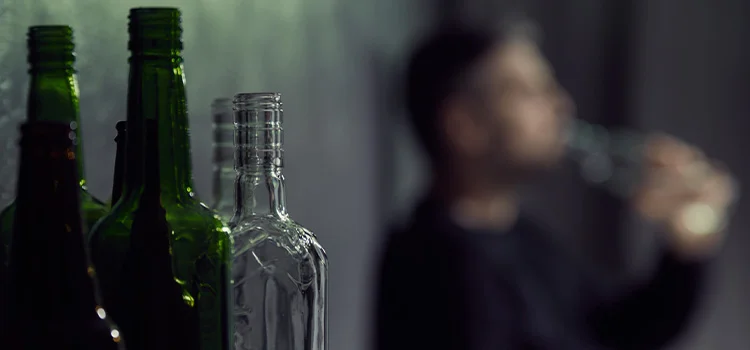Find Drug Rehab Facilities To Overcome Drug Addiction. Get Drug Rehab Treatments from Professional Inpatient And Outpatient Drug Rehab Specialists.
Near & Dear Rehab Center’s drug rehab program is designed to help individuals overcome their addiction to drugs by providing a comprehensive process that includes detox, rehabilitation, and aftercare. The detox stage, which is the first step in the process, is overseen by experts who assist individuals in stopping their drug use and helping the body rid itself of toxins. Rehabilitation, the second stage, typically takes place in an inpatient or residential setting and involves a variety of therapies such as cognitive-behavioral therapy and individual counseling. These therapies are designed to help individuals understand the underlying reasons for their addiction and develop the skills and strategies to overcome it. Aftercare, the final stage, includes ongoing support and counseling to help individuals maintain their sobriety. It's important to note that addiction is a chronic disease and requires long-term management, so an aftercare plan is crucial for the individual's long-term success. The drug rehab course of treatment will vary from person to person which depends on the type of drug they are using and the condition of drug addiction.

Drug Rehab Facilities in Port St. Lucie, FL
Near & Dear Rehab Center drug rehab facilities offer a range of services to help individuals detox, manage withdrawal symptoms, and address the underlying causes of their addiction. Near & Dear Rehab Center drug rehab facilities in Port St. Lucie, FL can be either inpatient or outpatient. Inpatient Facilities in Port St. Lucie, FL provide round-the-clock care and require individuals to live on-site for the duration of their treatment. Outpatient facilities allow individuals to live at home while receiving treatment on a part-time basis.
Types Of Drug Rehabs Programs in Port St. Lucie, FL
There are several different types of drug rehab programs, each with its own unique approach to treatment. Some of the most common types of drug rehab programs such as:
Inpatient Rehab: This type of program involves the individual staying at a residential facility for a certain period of time, typically 30-90 days. During this time, they receive round-the-clock care and treatment, which includes therapy, counseling, and medical treatment to help them detox from drugs and learn how to manage their addiction.Outpatient Rehab: This type of program allows individuals to continue living at home while receiving treatment. They typically attend therapy and counseling sessions on a regular basis but do not stay overnight at the facility. Outpatient Programs can be weekly or even daily and may have different intensities.
Medically-Assisted Detox: This type of program is typically used for individuals who are addicted to opioids or alcohol. It involves the use of medication to manage withdrawal symptoms and make the detox process more comfortable. Medications such as methadone, buprenorphine, and naltrexone are used to relieve the symptoms of withdrawal and cravings.
Holistic Rehab: This type of program uses a more holistic approach to treatment, incorporating things like yoga, meditation, acupuncture, and other therapies, in addition to therapy and counseling.
Behavioral Therapy: This type of program focuses on changing the individual's behavior and thought patterns related to their drug use. This can include Cognitive Behavioral Therapy, Contingency Management, Motivational interviewing, and other forms of therapy.
Dual Diagnosis or Co-Occurring Treatment: This type of program is designed for individuals who have both addiction and a Mental Health Disorder, such as depression or anxiety. They provide treatment for both conditions simultaneously, rather than treating them separately.
Faith-Based Rehab: This type of program incorporates religious or spiritual beliefs into treatment, and may include things like prayer, worship, and spiritual counseling.
Sober Living Homes: These are sober living environments that are meant for people who have completed treatment and are transitioning back to independent living, these homes typically have a set of rules and accountability measures and provide a supportive environment for individuals as they continue their recovery.
It's important to note that rehab programs can vary in intensity, duration, and approach, and it's essential to find the one that best fits an individual's needs and circumstances.

Port St. Lucie Drug Rehab Clinic
Near & Dear Rehab Center drug rehab clinic provides drug rehab treatment for individuals with substance use disorders. The goal of a drug rehab clinic is to help individuals Overcome Addiction To Drugs or alcohol and achieve lasting recovery. Near & Dear Rehab Center Drug rehab clinics can be either inpatient, where individuals live at the facility while receiving treatment, or outpatient, where the individual receives treatment while living at home. The length of stay in a drug rehab clinic can vary depending on the individual's specific needs and the severity of their addiction. Choose a Reputable Drug Rehab Clinic in Port St. Lucie, FL with a professional staff, an evidence-based approach, and a good track record of positive outcomes.
How Much Does Inpatient Drug Rehab Cost?
The cost of inpatient drug rehab can vary significantly depending on several factors, including the type of facility, location, length of stay, and the level of care provided. On average, the cost for a 30-day inpatient drug rehab program can range from $10,000 to $30,000, but some luxury or executive rehabs can cost over $100,000 for the same period. The cost of rehab will depend on the type of treatment provided by the facility as well. An Inpatient Diagnosis Rehab facility providing a traditional 12-step based treatment program will likely be less expensive than one that provides an alternative holistic treatment, or one that provides additional amenities like private rooms and personalized therapy. The length of stay in an Inpatient Rehab Facility in Port St. Lucie, FL also plays a role in determining the cost. Longer stays, such as 60-90 days or more, may cost more than shorter stays.
How Successful Are Drug Rehab Programs?
Drug rehab programs can be effective in helping individuals overcome addiction however, the success of a drug rehab program depends on a number of factors, including the individual's specific needs, the severity of their addiction, and the type of treatment they receive. It's also important to note that recovery from addiction is an ongoing process and relapse is possible even after a successful drug rehab program, that's why Aftercare Drug Rehab Programs and follow-up support are crucial for maintaining long-term sobriety. It is also essential to keep in mind that a successful drug rehab program in Port St. Lucie, FL is not a one-size-fits-all solution. Each person's needs and situation are unique and may require different types of treatments. Therefore, it is important to work with a professional to determine the most appropriate drug rehab program for you.

How Long Does A Person Stay In Drug Rehab Center?
The length of stay in a drug rehab program can vary depending on the individual's specific needs and the severity of their addiction. In general, short-term drug rehab programs last anywhere from 30 days to 90 days and may include both inpatient and Outpatient Treatment options. Long-term drug rehab programs, on the other hand, can last for six months or longer. However, the length of stay in a drug rehab program in Port St. Lucie, FL will depend on the individual's specific needs and the severity of their addiction. Some individuals may require a shorter stay, while others may require a longer stay. It is important to work with a professional to determine the appropriate length of treatment for you, as every person's situation is unique.
Frequently Asked Questions About Drug Rehabs
The cost of drug rehab in Port St. Lucie can vary widely depending on a number of factors, such as the type of treatment, the length of stay, and whether the program is inpatient or outpatient. According to the Substance Abuse and Mental Health Services Administration, the average cost of a 30-day drug rehab program ranges from $4,000 to $10,000. Costs can be much higher for luxury or executive programs.
The length of drug rehab treatment in Port St. Lucie can vary depending on the individual and the specific treatment program. In general, rehab for drug addiction can last anywhere from 28 days to 90 days or longer. Most rehabilitation centers offer a range of treatment options with different durations, such as:
- Short-term rehab: This type of program typically lasts 28 days or less and focuses on stabilization and withdrawal management.
- Long-term rehab: Programs that last longer than 30 days, up to 90 days or more, typically provide more intensive treatment and therapy. These programs may focus on addressing underlying issues that contribute to addiction, such as trauma or mental health disorders.
- Extended care: Some programs may offer continued care for several months or even a year. This type of program is designed for individuals who have completed a primary rehab program but need additional support to maintain their recovery.
Drug rehab, also known as substance abuse treatment, is a process that helps individuals overcome addiction and achieve lasting recovery. The goal of drug rehab in Port St. Lucie is to help individuals stop using drugs, learn to manage cravings and triggers, and develop the skills and strategies necessary to maintain long-term sobriety. The specific approach and methods used in rehab can vary depending on the program, but most rehab programs include the following elements:
- Detox: The first step in rehab is typically detox, during which individuals stop using drugs and allow their bodies to clear the substances from their systems.
- Therapy and counseling: These sessions may include individual therapy, group therapy, and family therapy.
- Medication management: Medications such as methadone, buprenorphine, and naltrexone may be used to help manage withdrawal symptoms and cravings.


